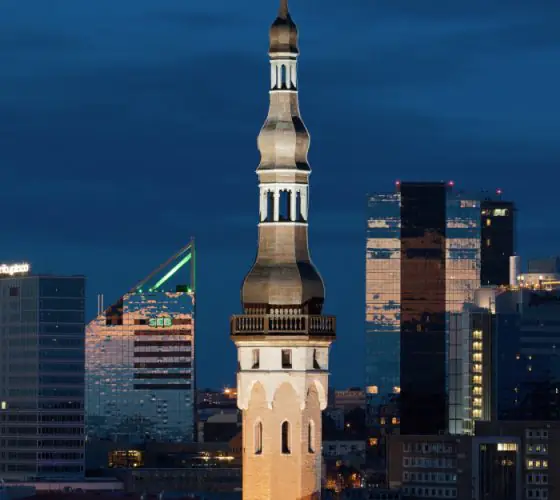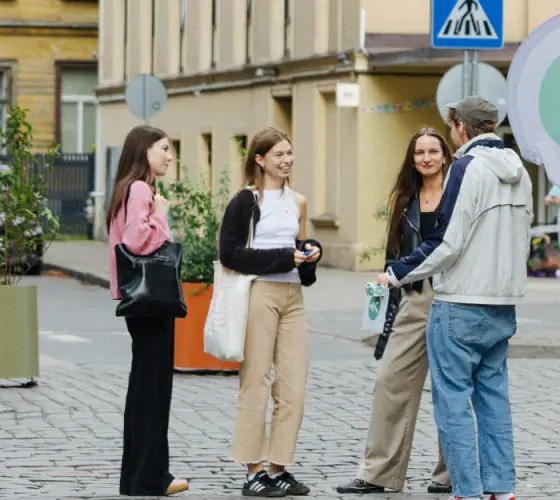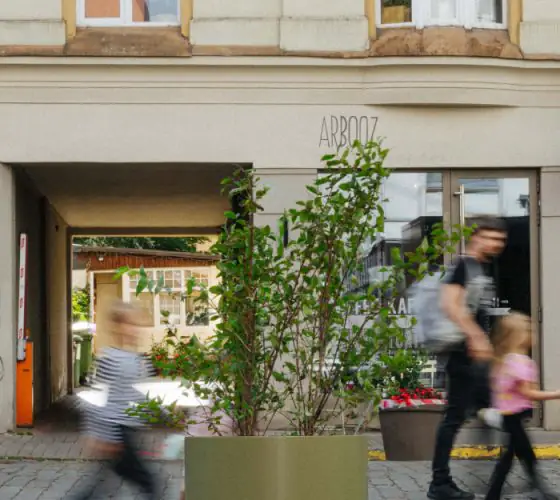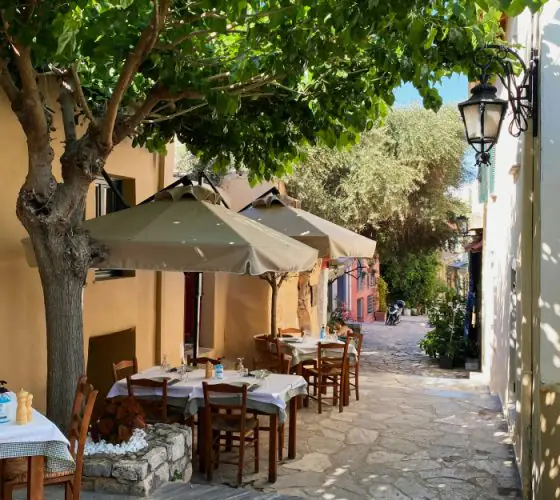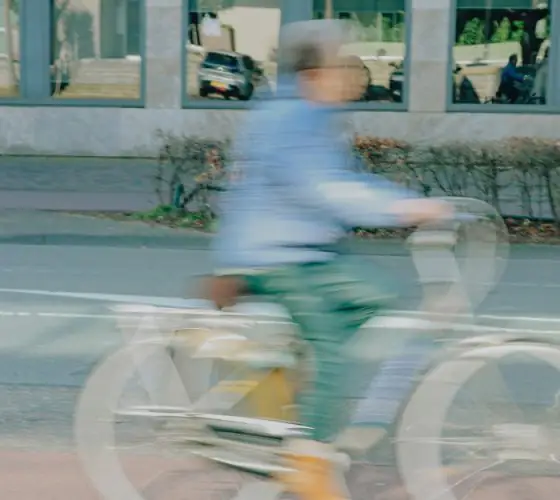
The Sustainable Development Solutions Network (SDSN) 2024 report ranks Latvia 13th out of 167 countries, with a Sustainable Development Index score of 80.99. This highlights Latvia’s ongoing commitment and investment in sustainable development, reflecting both the country’s and society’s dedication to achieving sustainability goals. That’s why integrating sustainability principles and conscious approaches in new business projects has become increasingly important.
The example of Versum, as well as other companies with an ecological focus, shows that this movement is not only in line with global environmental goals but also offers significant benefits to local communities, potential users, and the overall urban environment. Here’s an analysis of nine of them.

For residents: fresh air, cheaper utilities, and (probably) new friends
Improvement of air and environmental quality
New business projects can dramatically reduce pollution by focusing on green design, energy efficiency, and sustainable materials. The use of renewable energy sources such as solar and wind, combined with energy-efficient building designs, reduces reliance on fossil fuels, which are a major source of greenhouse gas emissions. “Green” materials, such as recycled or locally collected resources, reduce the environmental footprint by minimizing the energy and water used in production, as well as reducing pollution from manufacturing and transportation.
Unsurprisingly, Latvia, known for its green landscapes and commitment to environmental protection, will benefit from reduced carbon emissions and improved air quality. But this approach is particularly important for cities like Riga, with its huge port, where air pollution poses a challenge. Some studies show that levels of nitrogen dioxide NO2 and particulate matter PM10 exceed the limits, which could have a negative impact on health.

Energy saving and lowering of utility costs
Energy-efficient, well-insulated buildings with smart technologies can help reduce electricity and heating costs for residents. It’s still critical, even though the average annual temperature in Latvia, as in other European countries, is rising: cold winters require significant heating, making energy savings an essential factor in reducing everyday expenses.
In addition to the cold climate, Latvian utilities were also affected by rising energy prices following the start of Russia’s war of aggression against Ukraine. While the average share of energy costs in total costs, as reflected in tariffs, was 14% in 2021, it increased to 25% in 2022.


Community engagement
Latvians are quite a lonely nation: according to this article and some research, a quarter of Latvians feel more lonely in fall and winter, while 13% feel lonely regardless of the season.
Sustainable business projects can help solve this problem. They emphasize community building and inclusivity because these principles are key to long-term social and environmental well-being. By fostering a sense of community, such projects create spaces where residents and users feel connected, increasing social cohesion and contributing to a higher quality of life. Inclusivity ensures that these developments are accessible and beneficial to a wide range of people, regardless of their socio-economic status.
For users: comfortable environments, cost efficiency and pride for the company
Healthier and more comfortable environments
Neuroscientists at Northwestern University in the United States have concluded that exposure to natural light during the day is closely linked to sleep quality at night. Sustainable buildings often feature natural lighting, improved air quality and temperature control through green building technologies. This creates a healthier, more comfortable indoor environment for employees and customers alike.
Again, that’s very important for northern countries like Latvia, where people spend most of the winter indoors, with temperatures ranging from 0° C to -10° C.

Lower operational costs
In Latvia, companies face high energy costs due to cold winters and energy imports, especially in the last two years. Although energy prices have fallen from their peak numbers, they will be about 30% higher in 2022 than at the end of 2019. Energy-efficient buildings allow companies to reduce overhead costs, making these projects more attractive to companies of all sizes.
Good-looking brand image
As sustainability becomes an important purchase consideration for many consumers, companies that adopt green practices are more likely to attract environmentally conscious customers. And in Latvia, local consumers are particularly mindful of the environmental impact of their purchases.
According to RSU Research, there are three important aspects that influence consumer decisions in Latvia: the use of natural raw materials in production, recycling and communication, but the main factors that influence consumer behaviour when choosing a sustainable brand are marketing communication and the price of the product. Therefore, the holistic approach with green technologies and materials helps improve the business’s effectiveness.

For the city: reducing carbon footprints, economic growth and much more beautiful
Reducing urban carbon footprints
Sustainable business projects in Latvia are key to achieving Latvia’s urban environmental goals: in line with the European Green Deal and its Latvia2030 sustainable development strategy (operationalized through a national development plan and sectoral policies), the country aims to significantly reduce greenhouse gas emissions by 2030.
Green building practices, such as using energy-efficient designs, renewable materials, and advanced insulation, reduce energy consumption by 20-40% compared to traditional buildings- a critical improvement given that nearly half of Latvia’s energy demand is for heating due to its colder climate.

Economic growth and attractiveness
Sustainable development projects can attract international investors and companies that prioritize sustainability in their operations. Latvia, with its strategic location in the Baltic region, has the potential to become a hub for green business innovation, further boosting its economy. Conscious business projects also create new employment opportunities in areas such as green construction, renewable energy and sustainable technologies, while promoting skills development and economic resilience. For example, Latvia is particularly well-positioned for growth in renewable energy, especially as the solar and wind sectors expand, requiring technicians, engineers and supply chain specialists to meet rising demand.

Green building is a growing sector as cities invest in energy-efficient buildings and retrofit existing structures to meet environmental standards, creating jobs in areas such as sustainable architecture, eco-friendly materials, and efficient HVAC (heating, ventilation, and air conditioning) systems. The International Renewable Energy Agency (IRENA) estimates that renewable energy alone could create more than 42 million jobs worldwide by 2050, with roles in wind and solar energy installation, maintenance, and project management.
Enhanced urban aesthetics and functionality
Integrating sustainable practices into urban planning results in urban areas that are both visually appealing and highly functional. In Riga, sustainable urban planning combined with historic preservation promotes a harmonious blend of old and new. Initiatives such as pedestrian walkways, green spaces, and energy-efficient retrofits reduce congestion, improve air quality, and enhance quality of life. This approach not only creates vibrant, community-centered spaces for residents, but also attracts eco-conscious visitors, making the city more adaptable and appealing to all.

Conclusion
The adoption of sustainability and a conscious approach to business projects in Latvia offers a wide range of benefits that extend to residents, potential users, and the city as a whole. From improved environmental conditions and lower costs for individuals, to greater economic growth and improved urban functionality for cities, the integration of these practices is key to creating a more sustainable and prosperous future for Latvia.
The shift towards sustainability in business projects not only aligns with global environmental goals, but also improves the quality of life for all stakeholders, paving the way for a more resilient and environmentally conscious lifestyle.



